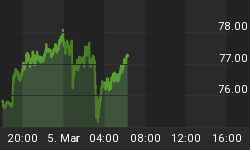Data and historical precedents suggest that there’s hardly any benefit at all to a merger of two more telecoms giants, T-Mobile and Sprint. Yet, in a completely partisan 3-2 vote, the Federal Communications Commission (FCC) has formally approved the merger that will wow the public with little more than a slight reduction in commercials about who’s got the best service. The new company will be the third biggest in this space, with a combined value of around $146 billion, including debt.
The approval was the last regulatory hurdle to creating a new mobile carrier as the Department of Justice approved the merger in July. But it’s been a long time coming, and the Democrats didn’t get their way.
In April last year, T-Mobile agreed to merge with Sprint, valued at $26.5 billion, creating a new, formidable rival in a sector led by AT&T and Verizon.
The merger has been in the works since the Obama administration. Back in 2014, the FCC opposed the deal, and so did the Justice Department.
Proponents of the deal focus on promises that the “New T-Mobile” will use its new position to quickly and efficiently deploy 5G to many markets it might not otherwise have reached.
But others were not taken in by this promise, including FCC Commissioner Jessica Rosenworcel, who voted against the approval, warned that mindless consolidation has a proven track record of making things worse for US consumers, not better.
“Instead of promoting vigorous competition among providers, today’s order justifies increased concentration by jerry-rigging a new provider dependent on the government dictating who sells what to whom and when,” Rosenworcel said in a statement.
She stressed that the “existing wireless market will devolve into a cozy oligopoly dominated by just three carriers. This will do nothing to make it easier for Americans to stay connected”.
But it still won’t be smooth sailing for the “New T-Mobile” from here on out: A number of states have filed an antitrust lawsuit, scheduled to go live in December in U.S. federal court. They’re hoping to block the merger transaction, arguing that the merger will reduce competition and lead to increased costs for consumers.
Related: Precious Metals See Record Inflows
When it comes to higher prices, there are real concerns.
Last year, a similar concern was raised during the $85 billion merger between AT&T and Time Warner. At that time, the two companies pledged that the merger would allow lower TV prices.
The US Department of Justice tried to stop the merger, arguing that it would raise prices for consumers. They have argued that consumer bills could rise by as $400 million annually or 45 cents per month per consumer.
However, a federal judge sided with AT&T and the merger was completed last June.
Since the merger was finalized, AT&T has informed its customers three times that prices would go up. The first increase happened just two weeks after the merger. Just in the last seven months, subscribers’ prices went up by 50 percent. Over the last year, AT&T has lost over 2.3 million TV subscribers.
As for the most recent price increase, AT&T says the price increase simply reflects “the cost to deliver content to our customers.” Despite being the broadcaster in this equation, AT&T blamed the hikes on broadcasters.
As a matter of fact, nearly all the claims by AT&T and Time Warner in 2018 about benefits for the customers, market or creating new jobs seem to be false. The only thing in AT&T PR favor right now is that other players have also increased the prices.
Still, that does little to make the argument for a merger based on what’s best for the consumer. This is what’s best for an oligopoly, plan and simple.
By Fred Dunkley for Safehaven.com
















